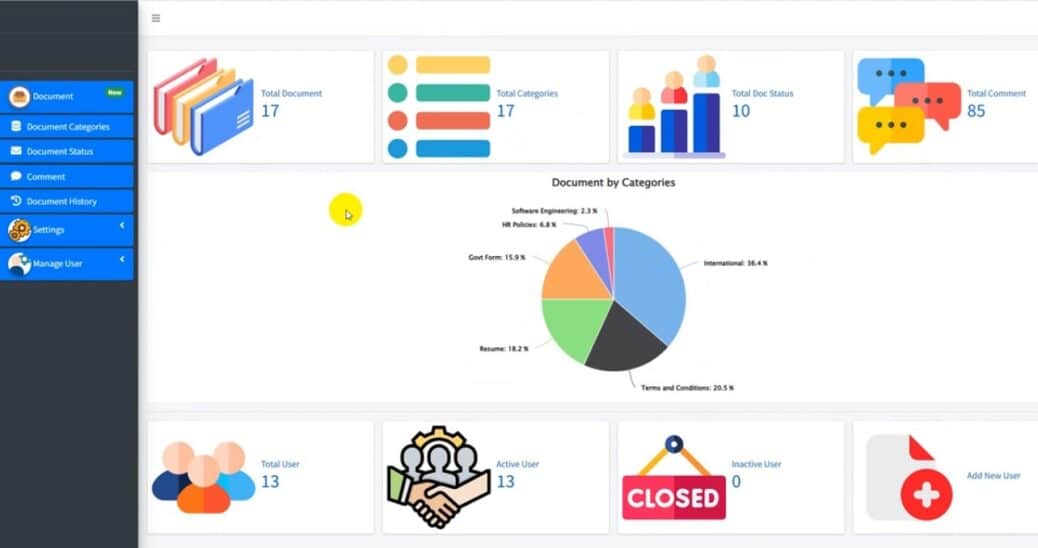Solutions to Healthcare Document Management Challenges
Have you ever struggled with managing healthcare documents? From patient records to insurance claims, the sheer volume of paperwork can be overwhelming. But what if there were solutions to these healthcare document management software challenges? The healthcare industry is notorious for its paperwork. With strict regulations and privacy concerns, managing documents can be a daunting task. However, the digital age has brought new technologies and strategies to help streamline healthcare document management.
Table of Contents
In this article, we will explore some of the common challenges faced in healthcare document management and provide solutions to help overcome them. By implementing these strategies, healthcare professionals can improve efficiency, accuracy, and ultimately, patient care.
Healthcare Document Management
In today’s world, the healthcare industry is becoming increasingly complex, with the need for efficient and organized document management becoming more crucial than ever before. Healthcare document management is the process of creating, organizing, storing, and managing patient and administrative documents in a secure and efficient manner. This article will provide an introduction to healthcare document management, including its importance and the key components of a successful system.
Importance of Healthcare Document Management
Effective healthcare document management is essential for several reasons. Firstly, it ensures the accuracy and completeness of patient data, which is critical for providing quality care. Secondly, it helps healthcare organizations comply with legal and regulatory requirements, such as HIPAA (Health Insurance Portability and Accountability Act) and the GDPR (General Data Protection Regulation). Additionally, it improves operational efficiency by reducing paper-based processes and streamlining workflows.
Key Components
A successful healthcare document management system includes several key components. These include:
- Document Capture: The process of digitizing paper-based documents and capturing electronic documents, such as lab results and medical images. This process not only saves time and space but also ensures that valuable information is not lost or damaged.
- Document Indexing: The process of assigning metadata to documents, such as patient name, date of birth, and medical record number, to make them easily searchable. Metadata can also include keywords, tags, and other relevant information that can help to categorize and classify the document. By indexing documents, organizations can improve their search capabilities, making it easier to find and retrieve specific documents quickly. This can be especially important in healthcare, where patient information needs to be readily accessible to providers and staff.
- Document Storage: The secure and organized storage of documents, either on-premise or in the cloud. Cloud storage has become increasingly popular in recent years due to its convenience and cost-effectiveness, allowing organizations to access their documents from anywhere with an internet connection. However, on-premise storage may be preferred in situations where data security and privacy concerns are paramount.
- Document Retrieval: The ability to quickly and easily retrieve documents when needed.
- Document Workflow: The automation of document-based processes, such as medical record requests and insurance claims.
- Document Security: The implementation of security measures, such as access controls and encryption, to protect patient data from unauthorized access and breaches.
The Importance of Document Management in Healthcare
Healthcare is an industry that relies heavily on paper-based documents to store, transfer and access information within the organization. As healthcare organizations increasingly shift towards digital solutions, document management systems and other electronic document management solutions are becoming vital components of successful healthcare organizations. This article will discuss the importance of custom medical software development, explore the different types of document management software being used today, and explain how adopting a digital approach can help improve healthcare operations.
-
The Importance of Systems
Document management is efficient and compliant healthcare operations. Without proper care of their information assets, hospitals, clinics, specialty centers and other healthcare facilities risk missing opportunities to streamline processes while also neglecting their obligations to comply with federal and state regulations that protect patients from medical errors and data privacy violations.
By leveraging a central repository for documents such as clinical notes, patient histories, referrals and lab results, healthcare providers can increase operational efficiency by quickly locating important documents without having to search through filing cabinets or archaic computer files. Moreover, cloud-based document management software enables the secure sharing and collaboration between multiple physicians throughout the care virtual continuum. It is reducing wait times for consultations or medical testing approvals thus improving outcomes through shared knowledge and insight.
-
Benefits of Adopting Management System Software in Healthcare
By adopting modern cloud-based document management system processes along with replacing manual practices with intuitively designed web applications. This is allowing users rapid access across any device anytime anywhere drastically improving response times for each client served. Thus elevating level service quality delivered under tight budgets. All while complying seamlessly with HIPAA mandated medical privacy protocols enforced with end-to-end encryption technology encapsulated within specific modules tailored explicitly for each customer served yielding automated task routing duties saving valuable time optimizing profits maximizing efficiency producing fault tolerant results meeting patient expectations affordably transforming organizational operation model better serving stakeholders associated respectively via healthcare document management software!

Business Developmeny Manager at PAS InfoCom Technologies Ltd. Experienced in project management with a demonstrated history of working in the information technology and services industry.










